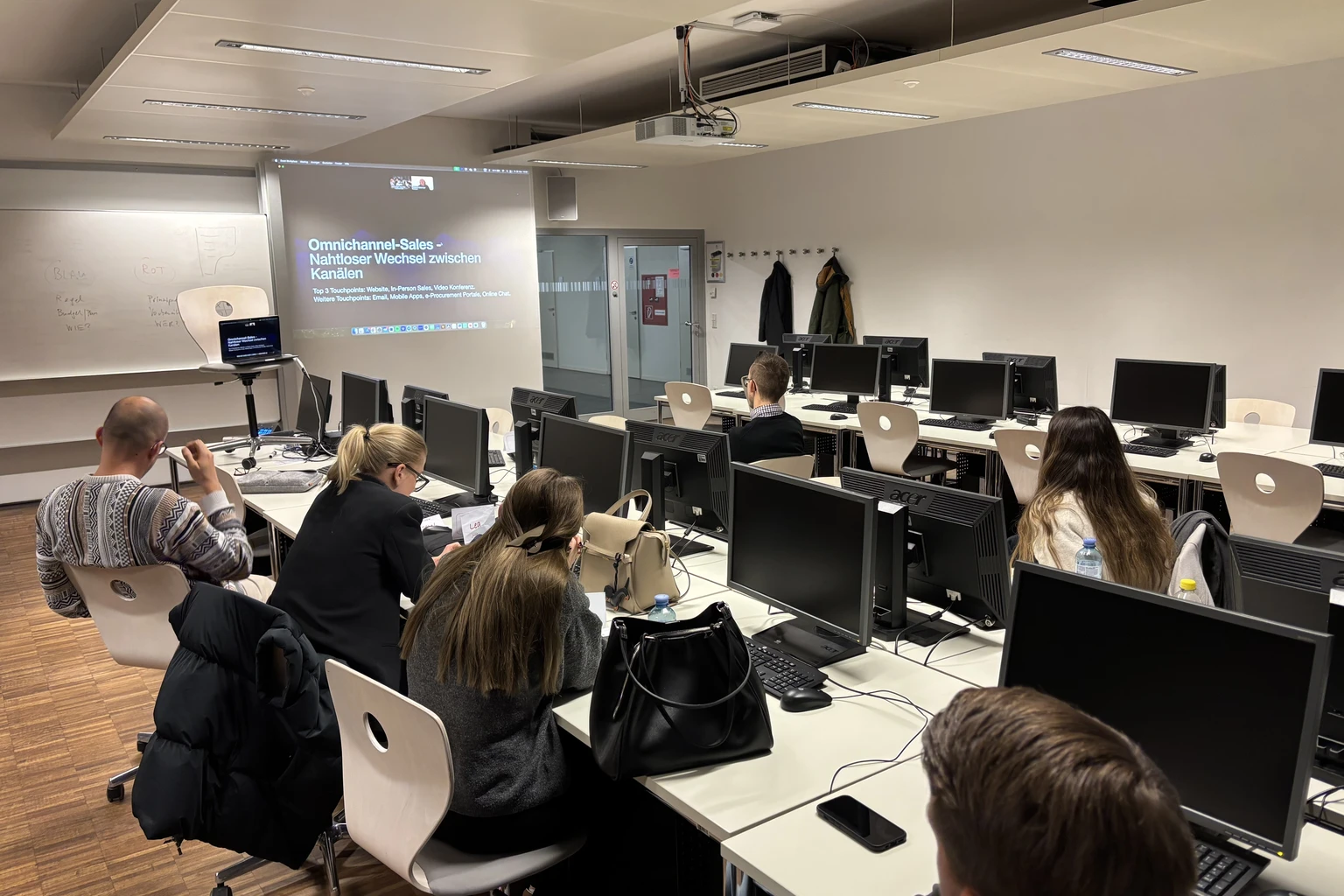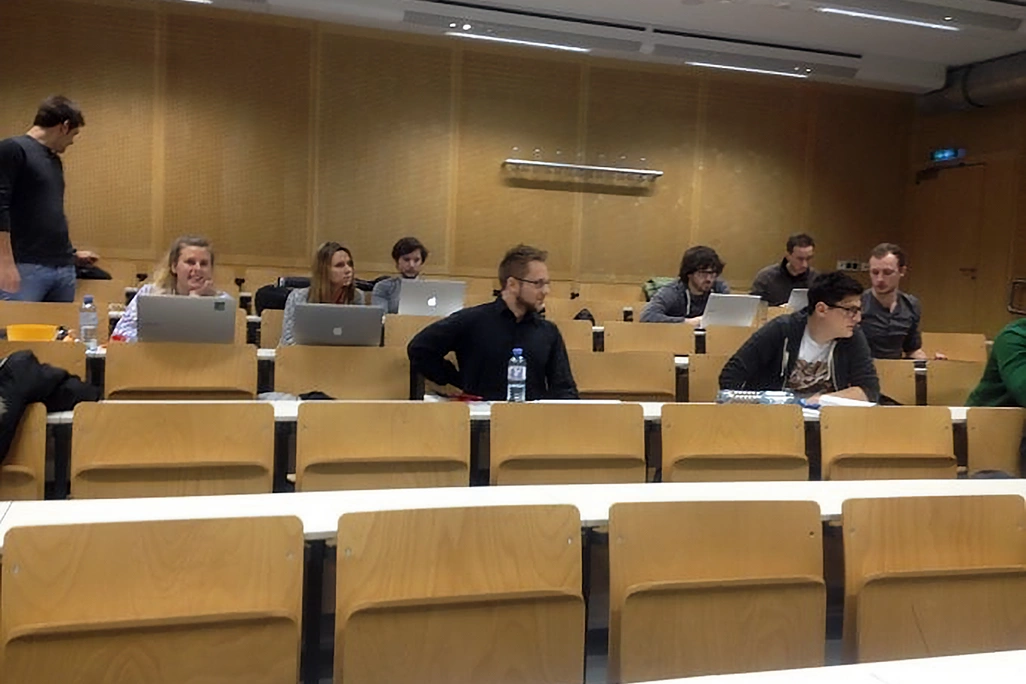
Expanding the Conversation: Exploring AI-Driven Sales and the Intersection with Machine Learning Tools at FH Salzburg for Applied Sciences
Following the success of my first lecture at the University of Applied Sciences in Salzburg, I had the privilege to return for another engaging session, this time diving deeper into AI-Driven Sales and its practical applications. Invited once again by Mag. Christoph Haudek, head of the consulting company “Sales Competence” and master study lead, I was excited to explore a new dimension of this topic: the overlap of machine learning and AI-based tools like Google Distance Matrix API for route planning.
The Role of AI in Enhancing Efficiency in Sales Operations
Building on the foundations laid during the first lecture, this session aimed to shed light on how AI and machine learning tools can streamline sales processes beyond predictive analytics and personalization. With route optimization and logistics as a focal point, we explored how businesses could achieve tangible efficiency gains by integrating these technologies into their workflows.
Key Themes Discussed:
1. Machine Learning Meets AI-Driven Sales
We examined how machine learning algorithms analyze complex datasets to reveal patterns and trends that human analysis might overlook. In the context of sales, this capability enables smarter decision-making, such as identifying optimal sales territories or targeting high-value leads with precision.
2. Google Distance Matrix API: A Practical Application
The Google Distance Matrix API served as a powerful example of how AI-based tools can tackle operational challenges in sales. This tool leverages machine learning to calculate distances and travel times between multiple locations, offering significant value for sales teams that rely on efficient route planning to meet clients or deliver goods.
Real-world scenarios included examples of optimizing delivery routes for e-commerce businesses and planning cost-effective travel schedules for sales representatives.
3. Strategic Benefits for Digital Sales
We discussed how integrating tools like the Distance Matrix API into AI-driven sales strategies can reduce travel time and fuel costs, improving profitability while freeing up time for sales reps to focus on client relationships and closing deals.
These tools also enhance customer satisfaction by ensuring on-time deliveries or visits, a critical factor in competitive markets.
4. Bridging the Skills Gap
As with the awareness gap discussed in the first lecture, this session emphasized the skills gap—the need for teams to acquire the technical expertise to effectively implement these tools. Businesses must invest in training their sales and operations teams to leverage AI-based solutions.
5. Ethical Considerations in AI-Powered Logistics
The discussion also touched on ethical concerns, such as privacy issues when tracking customer locations or optimizing routes based on personal data. Ensuring transparency and obtaining informed consent from users remain essential to maintaining trust.
Interactive Discussions and Real-World Insights
The 1.5-hour lecture was followed by a dynamic Q&A session, where students and faculty shared their perspectives and raised thought-provoking questions. Some key discussions included:
- How SMEs (Small and Medium Enterprises) can affordably adopt such technologies.
- The impact of route optimization on environmental sustainability, such as reducing carbon emissions through efficient travel.
- The potential for integrating AI tools like the Google Distance Matrix API with CRM systems to further enhance decision-making.
Fostering Awareness and Action
One of the key takeaways from this lecture was the importance of moving from awareness to action. While businesses increasingly understand the potential of AI and machine learning, the challenge lies in taking tangible steps to adopt these solutions. I encouraged students and professionals alike to embrace a mindset of experimentation, learning, and collaboration with AI technologies.
Gratitude and Looking Ahead
I am deeply grateful to Mag. Christoph Haudek and the University of Applied Sciences in Salzburg for providing this platform to discuss such critical and future-focused topics. It was rewarding to witness the enthusiasm and curiosity of the students, who are undoubtedly the next generation of leaders in digital sales and AI innovation.
I look forward to continuing these important conversations and exploring more use cases where AI and machine learning can revolutionize the sales landscape. Together, we are shaping the future of sales—one lecture at a time!
Additional Blog Posts
A Dynamic Impulse Lecture at University of Applied Sciences Vienna
How AI Can Help Discover Hidden Data Treasures
Every day, I see how valuable data is for businesses—and at the same time, how often its full potential goes untapped.

